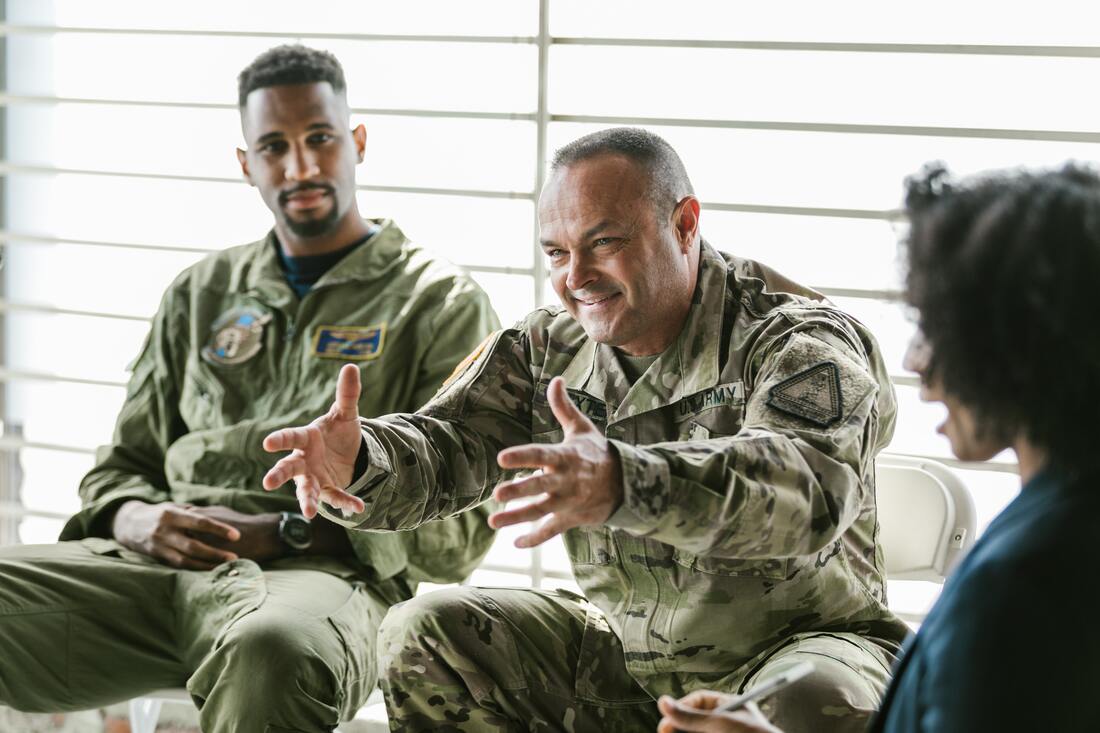Introduction
When couples embark on the journey toward marriage, they often encounter a whirlwind of emotions, expectations, and concerns. Amidst the excitement of wedding planning and dreams of a shared future, it's not uncommon to feel anxiety or uncertainty. This is where pre-marital counseling plays a vital role. A skilled counselor can provide couples with the tools they need to navigate these pre-marital concerns effectively. In this article, we'll explore how counselors help couples prepare for marriage, addressing issues like anxiety and depression through tailored approaches such as Anxiety Counseling, Depression Counseling, EMDR Therapy, and Couples Counseling.
Navigating Pre-Marital Concerns: The Role of a Counselor
What is Pre-Marital Counseling?
Pre-marital counseling is a structured way for couples to discuss various aspects of their relationship before tying the knot. It provides an environment where partners can express concerns about finances, intimacy, family dynamics, and communication styles. This form of counseling aims to strengthen the couple's bond while addressing potential challenges head-on.
Why Do Couples Seek Pre-Marital Counseling?
Many couples seek counseling due to underlying anxieties or specific concerns that might affect their relationship. Common reasons include:
- Fear of commitment Family pressures Financial stress Communication issues Past traumas
The goal here is to foster open communication and prepare couples for potential challenges.

The Benefits of Pre-Marital Counseling
In today's fast-paced world, many find it beneficial to engage in pre-marital counseling. Here are some advantages:
- Improved Communication: Understanding each other's communication styles can help mitigate misunderstandings. Conflict Resolution Skills: Couples learn strategies for resolving conflicts positively. Setting Expectations: Discussing expectations around roles and responsibilities can prevent future disagreements. Strengthened Connection: Engaging in deep conversations fosters intimacy and trust.
How Do Counselors Approach Pre-Marital Concerns?
Counselors typically employ various therapeutic techniques tailored to the couple's unique situation. These methods may include:
Cognitive Behavioral Therapy (CBT): Helps individuals identify negative thought patterns affecting their relationship. Anxiety Counseling Emotionally Focused Therapy (EFT): Focuses on emotional bonding between partners. Solution-Focused Brief Therapy: Concentrates on finding solutions rather than delving into past problems.Understanding Anxiety in Relationships
What is Relationship Anxiety?
Relationship anxiety refers to feelings of unease or apprehension related to romantic relationships. It's common among individuals preparing for marriage as they grapple with fears about compatibility and future commitments.
Signs of Relationship Anxiety
Some signs that you may be experiencing anxiety within your relationship include:
- Constant worry about your partner's feelings Overthinking interactions Difficulty trusting your partner Fear of abandonment or rejection
How Can Anxiety Counseling Help?
Anxiety counseling helps individuals address these fears constructively. Therapists work with clients using techniques like mindfulness and cognitive restructuring to manage anxious thoughts effectively.
Techniques Used in Anxiety Counseling
Cognitive Restructuring: Challenging negative beliefs about oneself and the relationship. Mindfulness Practices: Techniques that encourage living in the moment rather than worrying about the future. Exposure Therapy: Gradual exposure to fears in a controlled setting.Addressing Depression Before Marriage
Understanding Pre-Marital Depression
Entering into marriage can trigger depressive symptoms for some individuals, often stemming from unresolved personal issues or external pressures.
Signs That You May Be Experiencing Depression
Common indicators include:
- Persistent sadness or low energy Loss of interest in activities once enjoyed Changes in appetite or sleep patterns Difficulty concentrating on tasks
How Does Depression Counseling Work?
Depression counseling focuses on understanding the root causes of depressive feelings while providing coping mechanisms.
Therapeutic Approaches in Depression Counseling
Cognitive Behavioral Therapy (CBT) focuses on identifying negative thought cycles contributing to depression. Interpersonal Therapy (IPT) addresses interpersonal issues that might be affecting mental health. EMDR Therapy helps process traumatic memories that could be influencing current emotional states.Exploring EMDR Therapy
What is EMDR Therapy?
Eye Movement Desensitization and Reprocessing (EMDR) therapy is designed primarily for PTSD but has gained traction as a tool for processing distressing memories that may resurface during pre-marital discussions.
How Does EMDR Work?
Through guided eye movements or bilateral stimulation, EMDR helps individuals reprocess traumatic experiences, enabling them to gain new perspectives without being overwhelmed by negative emotions.
Benefits of EMDR in Pre-Marital Counseling
Using EMDR within pre-marital counseling can assist couples by:
Addressing unresolved trauma that affects relationship dynamics. Helping partners understand each other's backgrounds better. Creating an emotionally safe space for discussion.The Importance of Couples Counseling
What Is Couples Counseling?
Couples counseling provides an opportunity for partners to work together with a trained professional who facilitates discussions about their relationship dynamics.
When Should You Consider Couples Counseling?
You may want to consider couples counseling if you notice:
- Frequent arguments over trivial matters Lack of intimacy or connection Communication breakdowns leading to misunderstandings Discontentment regarding shared goals
Goals of Couples Counseling Before Marriage
Before walking down the aisle, couples should aim for:
Clear communication pathways. Mutual understanding regarding roles within the relationship. Strategies for navigating conflict respectfully.Common Topics Covered During Pre-Marital Counseling
Communication Styles
Understanding how each partner communicates can significantly improve relationship dynamics.
Key Aspects Include:
Listening Skills: Learning active listening techniques fosters empathy between partners. Expression Styles: Encouraging open expression reduces misunderstandings.Financial Expectations
Money management often becomes a contentious issue post-marriage; thus discussing finances early can prevent future conflicts.
Areas to Explore Include:
Budgeting Practices Saving Strategies Debt ManagementFamily Planning
Discussing children can be daunting but essential prior to marriage; this includes preferences around parenting styles and family values.
FAQs About Pre-Marital Counseling
1. What Should I Expect from Pre-Marital Counseling?
You'll likely participate in sessions focused on communication skills, financial planning, conflict resolution strategies, and personal goal sharing.
2. How Long Does Pre-Marital Counseling Last?
Typically, sessions span several weeks or months based on individual needs but usually consist of 4–8 meetings before marriage.
3. Will My Counselor Share Information with My Partner?
Confidentiality is paramount; counselors will not disclose personal information without consent unless there’s imminent risk involved.
4. Can Pre-Marital Counseling Help if We're Already Engaged?
Absolutely! This type of counseling helps solidify your bond even after engagement by addressing critical areas before saying "I do."
5. Are There Specific Tools Used During Sessions?
Yes! Many counselors utilize worksheets, assessments like PREPARE/ENRICH inventories, role-playing exercises, etc., during sessions!

6. How Do I Find a Qualified Counselor?
Look for certified professionals specializing in pre-marital counseling through referrals from friends/family or professional directories!
Conclusion
Navigating the intricacies associated with impending nuptials doesn't have to be overwhelming when you're equipped with guidance from experienced counselors specializing in pre-marital concerns such as anxiety, depression, emotional hurdles faced by couples today—like those addressed via Couples Counselling—will all contribute toward setting up strong foundations ahead! By choosing paths like EMDR therapy along with traditional approaches tailored specifically towards meeting individual needs collectively ensures lasting success long after vows are exchanged! Remember—it's never too late—or too early—to invest time into nurturing healthy connections along this beautiful journey called love!
With this comprehensive guide exploring "Navigating Pre-Marital Concerns: The Role of a Counselor," readers should feel empowered about seeking professional assistance while preparing themselves mentally/emotionally before embarking upon one major life chapter!